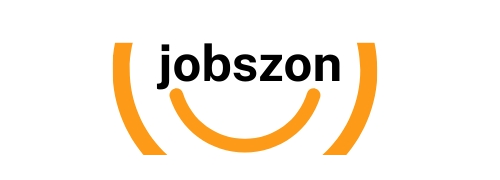5 Trick Questions You Need to Know Before Your Next Accounting Job Interview
Job interviews can be a nerve-wracking experience, especially when you’re aiming for roles in accounting. Beyond the standard “Tell me about yourself” or “What are your strengths?” some hiring managers like to throw in trickier questions designed to test not just your knowledge but also how you think under pressure. Over the years, I’ve seen some truly challenging ones pop up, and I’m here to help you navigate them like a pro.
These five questions are known to make the rounds in accounting job interviews, and if you know how to answer them, you’ll stand out as a well-prepared and insightful candidate. Let’s dive right in!
1. Why Is Net Income Different From Cash Flow?
This is classic. If you’re asked this, the interviewer wants to know if you understand the core principles of accrual accounting versus cash accounting. Net income and cash flow differ because not all income or expenses involve actual cash.
Here’s how you can break it down:
- Credit Sales: Sales revenue is often recorded before cash is received.
- Accrued Expenses: Expenses can be recognized before cash is paid.
- Non-Cash Items: Depreciation and amortization reduce net income but don’t affect cash flow.
- Loans and Capital Expenditures: Borrowed money or investments in equipment impact cash flow but not net income.
For bonus points, mention the cash flow statement. It’s the bridge between net income and cash flow and shows how companies reconcile the two. Dropping this nugget of information can demonstrate that you not only understand the theory but also the tools used to analyze it.
2. If DSO Is High, How Do You Fix It?
Days Sales Outstanding (DSO) measures how long it takes to collect cash after a sale. A high DSO means cash flow issues could be lurking, and the interviewer is testing your problem-solving skills.
Here’s how you can tackle it:
- Slow Payers: Identify customers who delay payments and address the issue diplomatically.
- Payment Terms: Tighten terms from, say, 60 days to 30 days. Clear communication is key here.
- Ease of Payment: Make payments seamless by offering multiple methods—bank transfers, credit cards, or even online portals.
The key is to show you’re proactive and detail-oriented, two qualities every employer seeks for accounting jobs.
3. What Is the Current Corporate Income Tax Rate?
This might seem like an easy one, but it’s often used to catch candidates off-guard. Every accountant should know this, even if the role doesn’t focus on taxes.
In the U.S., the corporate income tax rate is 21%. Make sure to research the tax rate applicable to your country or region if you’re applying internationally. Knowing this not only demonstrates your awareness but also shows you stay updated on relevant financial regulations.
4. If Working Capital Is Negative, Is That a Red Flag?
Working capital equals current assets minus current liabilities. Negative working capital can sound alarming, but the correct answer is: “It depends.”
Here’s why:
- In cash-heavy businesses like retail or restaurants, negative working capital might be normal because they collect cash upfront while delaying payments to suppliers.
- For companies dependent on accounts receivable, negative working capital could signal financial trouble.
The best way to answer this is to explain that you’d analyze the company’s industry, financial trends, and liquidity ratios before jumping to conclusions. This shows analytical thinking and a balanced perspective.
5. How Do You Record Profit on a Sale of $1,000 With a Cost of $800?
This one sounds simple, but it’s designed to trip you up. The interviewer is looking to see if you understand that “profit” isn’t a journal entry—it’s the outcome of multiple entries.
Here’s the right way to explain it:
- Record revenue: Debit cash for $1,000 and credit sales for $1,000.
- Record cost of goods sold (COGS): Debit COGS for $800 and credit inventory for $800.
- Profit, calculated as revenue minus COGS, appears as a line item on the income statement.
Be cautious here. The interviewer might be fishing for a mistake, like trying to “record profit” directly. Stay cool, and remember: profit is calculated, not booked.
Pro Tips for Handling Trick Accounting Job Questions
Sometimes, it’s not just about the answer but how you approach the question. Here are some strategies to help:
- Ask for Clarification: Don’t hesitate to request the interviewer to repeat or clarify a question. It shows you’re thorough.
- Use Pen and Paper: Visualizing your thoughts by jotting down notes can make tricky calculations or concepts easier to handle.
- Pause and Think: Silence isn’t your enemy. Taking a moment to gather your thoughts is far better than rushing and fumbling.
Final Thoughts for an Accounting Job Interview
Interviews for accounting jobs are as much about your technical knowledge as they are about your ability to handle pressure and think critically. The key is preparation. By knowing how to tackle these five tricky questions, you’ll not only showcase your expertise but also your confidence and problem-solving skills.
